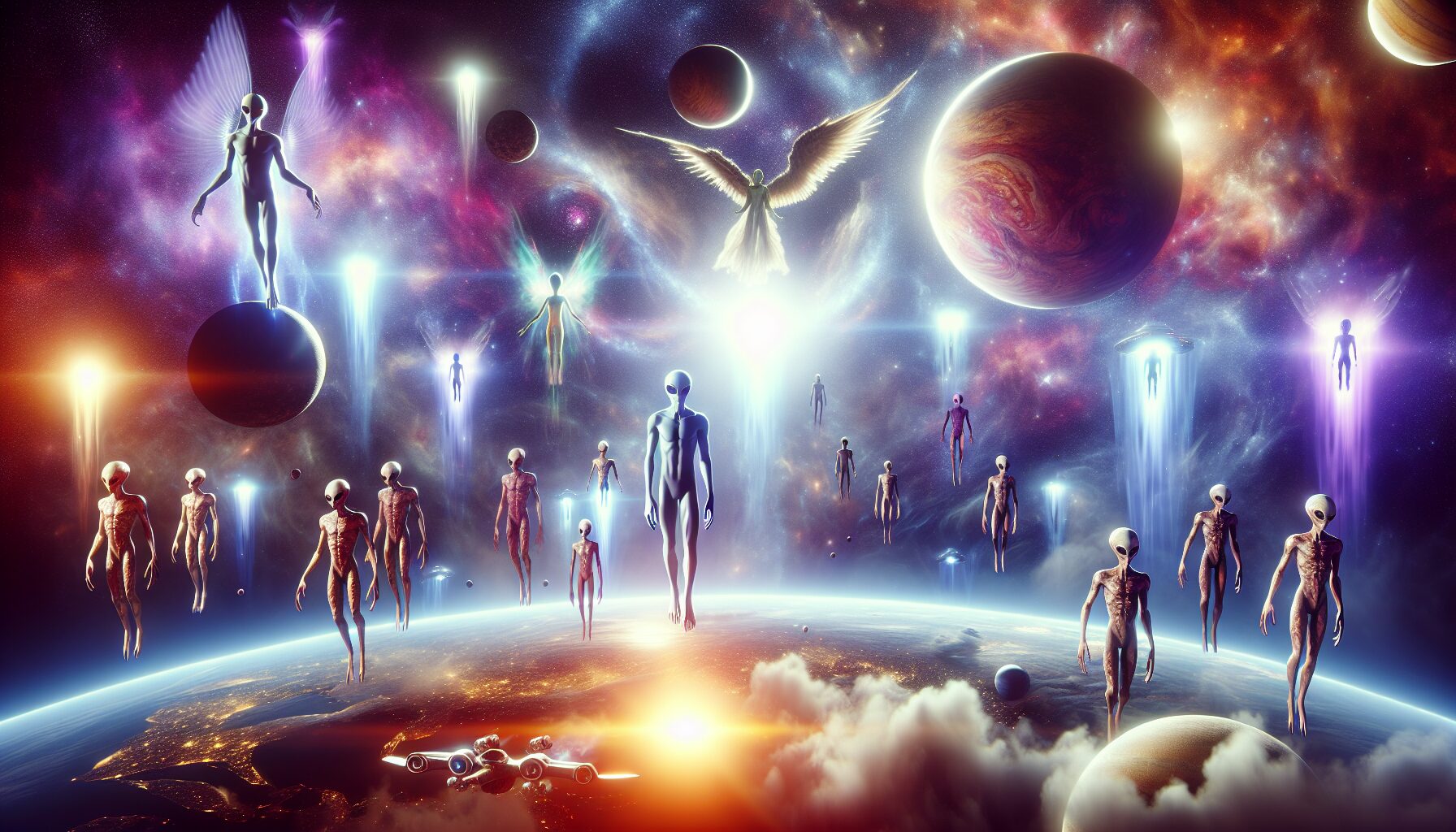Extraterrestrial Immortality: Myths of Eternal Beings
The concept of extraterrestrial life has forever fueled our imagination, with countless stories exploring beings from other worlds. Among the most captivating of these tales is the idea of extraterrestrial immortality. The notion that otherworldly creatures might possess the secret to eternal life raises both curiosity and existential questions about our place in the universe.
An Ancient Fascination
From the annals of mythology to modern science fiction, immortality has been a recurring theme. Ancient cultures, such as the Egyptians and Greeks, often depicted gods and celestial beings possessing eternal life. These stories served as both moral lessons and reflections of human desires and fears surrounding death and the unknown realms beyond our earthly existence.
In works like The Epic of Gilgamesh, one of the oldest surviving pieces of literature, the quest for immortality is central. Gilgamesh’s journey reflects an age-old human pursuit for eternal life—echoing modern-day aspirations and perpetuating myths that extraterrestrial beings might have already achieved this transcendence.
Modern Mythology and Science Fiction
Contemporary media continues to explore the idea of extraterrestrial immortality. In the realm of science fiction, countless narratives depict extraterrestrials as timeless entities. Films and television series, such as Doctor Who and Star Trek, explore the coexistence of mortal humans with near-immortal aliens, probing the ethical and psychological effects of such interactions.
Ray Bradbury, in The Martian Chronicles, discusses the transformation and ultimate transcendence in extraterrestrial contexts. “We earth men have a talent for ruining big, beautiful things,” Bradbury writes, highlighting our transient nature in contrast with the suspected perpetual wisdom of alien life forms (Wikipedia).
Scientific Interpretations
The scientific community has taken keen interest in the study of longevity and potential immortality. Though the possibility of extraterrestrial life forms achieving timelessness remains speculative, research into biology and technology continues to pave the way for understanding potential mechanisms for extending life.
Prominent physicist and futurist Michio Kaku suggests that advanced extraterrestrials might manipulate biological and technological elements to achieve long lifespans, potentially akin to immortality. “Extraterrestials a million years ahead might be immortal,” posits Kaku, urging us to consider the possibilities of what advanced sciences could entail (Michio Kaku’s Website).
Philosophical and Ethical Considerations
The potential existence of immortal extraterrestrial beings invites profound philosophical and ethical questions. Would immortality change the essence of what it means to be sentient? How might the existence of immortal beings affect human identity and our understanding of life and death?
“If aliens exist, they may not just be smarter—some might be immortal. But would that be living?” – Maria Popova, Brain Pickings
The intersection of immortality and extraterrestrial life sparks debates on the values we place on mortality, creativity, and the human spirit. Questions about control, power, and the morality of eternal life further complicate the discussion as we attempt to imagine living in a universe with beings that defy the temporal limitations that define Earthly experiences.
Conclusion
While the reality of immortal extraterrestrial life remains firmly in the realm of speculation, its implications continue to inspire both awe and trepidation. Exploring these narratives enriches our understanding of the universe and challenges us to ponder fundamental questions about existence, impermanence, and the human condition.
As we continue to gaze at the stars and dream of possibilities beyond our planet, the mythology of extraterrestrial immortality serves not only as a source of wonder but as a mirror reflecting our own hopes, fears, and aspirations.

Comments